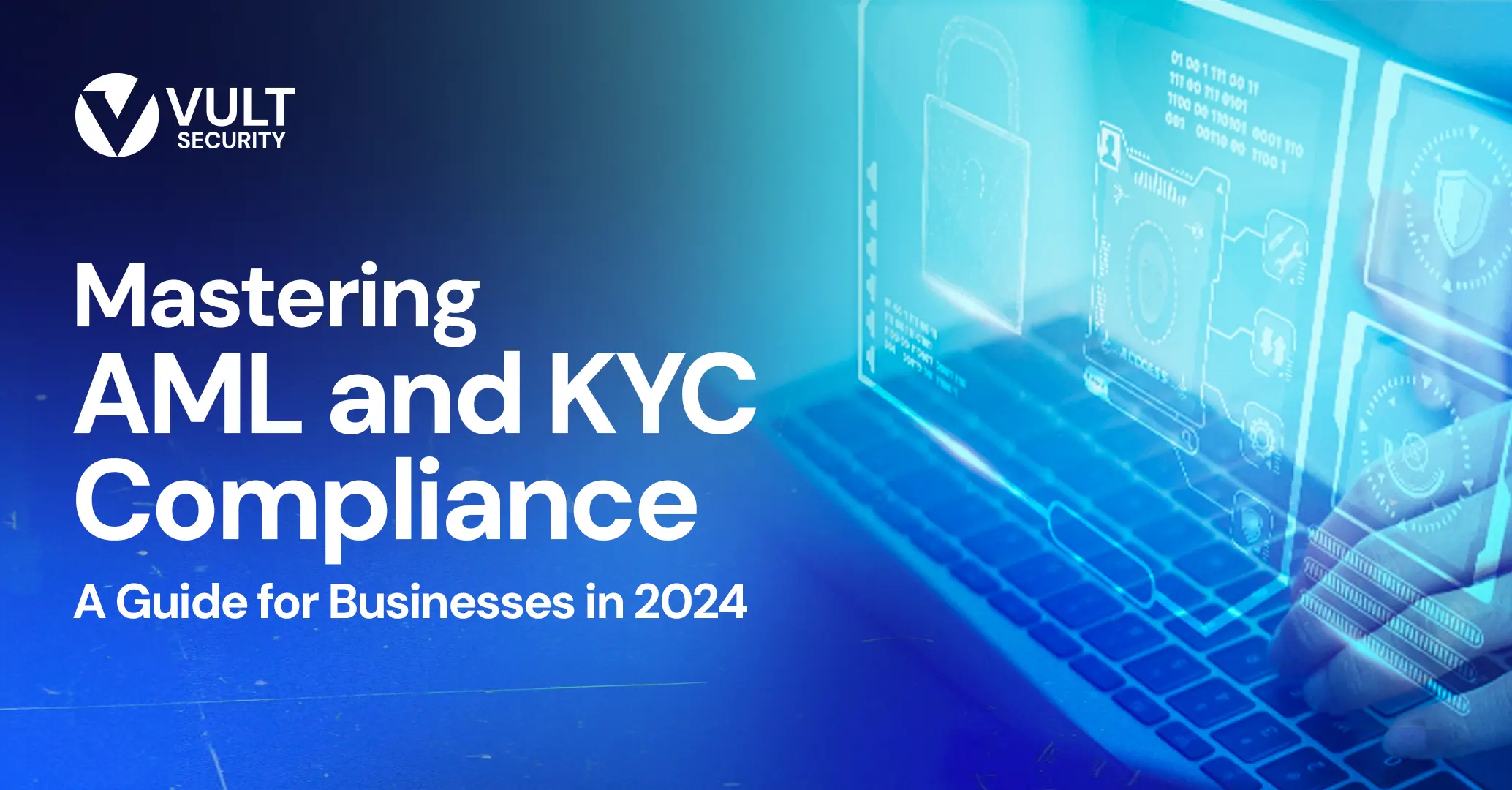
For a long time, financial institutions have been the guardians of the financial system; they are responsible for ensuring that transactions are conducted in an honest manner and preventing illegal activities. These duties have taken on greater significance in today’s digitalized world.
Anti-Money Laundering (AML) and Know Your Customer (KYC) regulations are important elements in this fight. Although they may sometimes be used interchangeably, these terms have distinct roles that complement each other to form a strong compliance framework.
Defining AML and KYC
AML refers to policies, procedures, and controls that financial institutions or businesses adopt to prevent, detect, and report money laundering activities. Money laundering involves concealing the origins of illegally obtained money by passing it through legitimate financial channels.
Anti-money laundering programs aim to identify suspicious transactions and report them; they should also carry out enhanced due diligence and maintain comprehensive records.
On the other hand, KYC means verifying a customer’s identity with those of beneficial owners to assess risks associated with their coming on board. KYC processes entail collecting and verifying various details concerning a client, such as name, address, and date of birth, among others, relevant for ensuring regulatory compliance while preventing frauds like identity theft.
Differences between AML and KYC
While closely related or intertwined there exist some differences between AML vs KYP because each has got its own purpose or focus:
- Purpose: One concentrates more on averting or detecting money laundering activities, while another mainly looks into identifying and authenticating clients and mitigating potential associated risks.
- Scope: There is wider coverage under anti-money laundering than the Know Your Customer program, including, but not limited to, transaction monitoring, reporting suspicions, keeping records, etc.; however, KYC usually relates only to the identification process together with the due diligence requirement for a particular institution.
- Timing: Normally, the customer relationship starts during enrollment, when KYCs are performed, whereas AMLs continue over time, as customers must be aware of what they do in transactions.
- Regulatory requirements: Both are regulated by various legislations, such as the USA PATRIOT Act and CDD rule, among others, but specific obligations may vary depending on the jurisdiction or sector involved.
Importance of AML and KYC Compliance
For enterprises, especially those operating within the financial services industry, it is paramount that they comply with anti-money laundering laws and know customer regulations.
Failure to meet these standards can attract heavy penalties, including reputational damage through negative publicity exposure or even criminal prosecution. In addition, effective implementation of anti-money laundering programs will assist businesses:
- Prevent Financial Crimes: Businesses play a vital role in this worldwide campaign against money laundering and other crimes, such as terrorist financing, by reporting suspicious activities.
- Mitigate Risks: It enables them to identify, assess, manage, and protect themselves against potential liabilities from dealing with risky clients during their due diligence processes.
- Build Trust: Establishing openness and good faith relations with regulatory authorities satisfies stakeholders, while observing all relevant laws helps foster credibility, enhancing reputation and attracting more business deals over time.
- Avoid Penalties: This saves firms costly fines and legal actions imposed upon them by regulators who discover that certain rules were not followed during transactions.
Best Practices for Implementing AML and KYC Programs
Businesses must take a comprehensive approach and commit themselves to effectively implementing AML and KYC programs. Below are some of the best practices that can be considered:
- Risk-Based Approach: This involves adopting risk-based measures on AML and KYC, varying the level of due diligence and monitoring according to the evaluated risk concerning customers and transactions.
- Continuous Monitoring: Establish strong monitoring systems that regularly check customer activities and transactions to identify potential red flags or suspicious patterns.
- Employee Training: It is important to invest in regular training programs to become conversant with procedures, regulations, emerging trends, and other related AML and KYC.
- Technology Adoption: Employing sophisticated technologies like artificial intelligence (AI) and machine learning (ML), among others, could help improve efficiency within AML/KYC processes.
- Collaboration & Information Sharing: Financial institutions should collaborate with regulatory bodies and law enforcement agencies to fight financial crimes collectively.
Emerging Trends and Technologies
The AML/KYC compliance landscape changes due to technological advancements and shifting regulatory environments. Some of these trends include:
- Regtech (Regulatory Technology): Regtech solutions streamline compliance through automation, transforming how businesses handle AML/KYC.
- Digital Identity Verification: Biometrics, facial recognition, and document verification are some new tools used during KYC processes that enhance accuracy and speed up the process.
- Blockchain and Distributed Ledgers: Adopting blockchain technology and distributed ledgers may bring about more transparency, traceability, and secure data sharing in various AML/KYC initiatives.
- Cloud Computing & Big Data Analytics: With cloud computing-based solutions alongside big data analytics, firms can effectively analyze large volumes of information and detect suspicious activities faster, thus better-identifying patterns.
Closing Thoughts
Though complex, steering through the AML/KYC compliance space is necessary for firms to safeguard their reputation and integrity. By differentiating AML from KYC, implementing best practices, and embracing emerging technologies, organizations can create robust compliance programs that satisfy regulatory requirements and inspire trust among clients and stakeholders.
VULT Security is an industry leader in providing financial technology solutions. These include cutting-edge AML/KYC tools that enable businesses to streamline compliance processes and mitigate risks while keeping pace with change. Get in touch today so we can show you our innovative solutions designed specifically for your AML and KYC compliance needs, ensuring a safe future for your business that aligns with the law.
Are you ready to take your AML/KYC compliance strategies to the next level? Our experts at VULT Security will guide you through every step of the process, helping you implement tailored solutions that meet all your business requirements. Book a consultation now and start building a comprehensive yet streamlined approach towards full compliance within the shortest time possible!